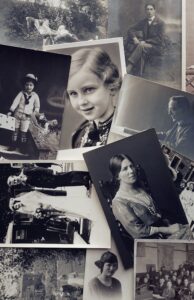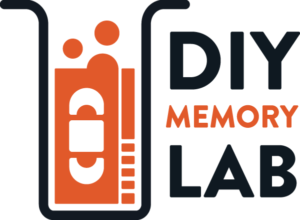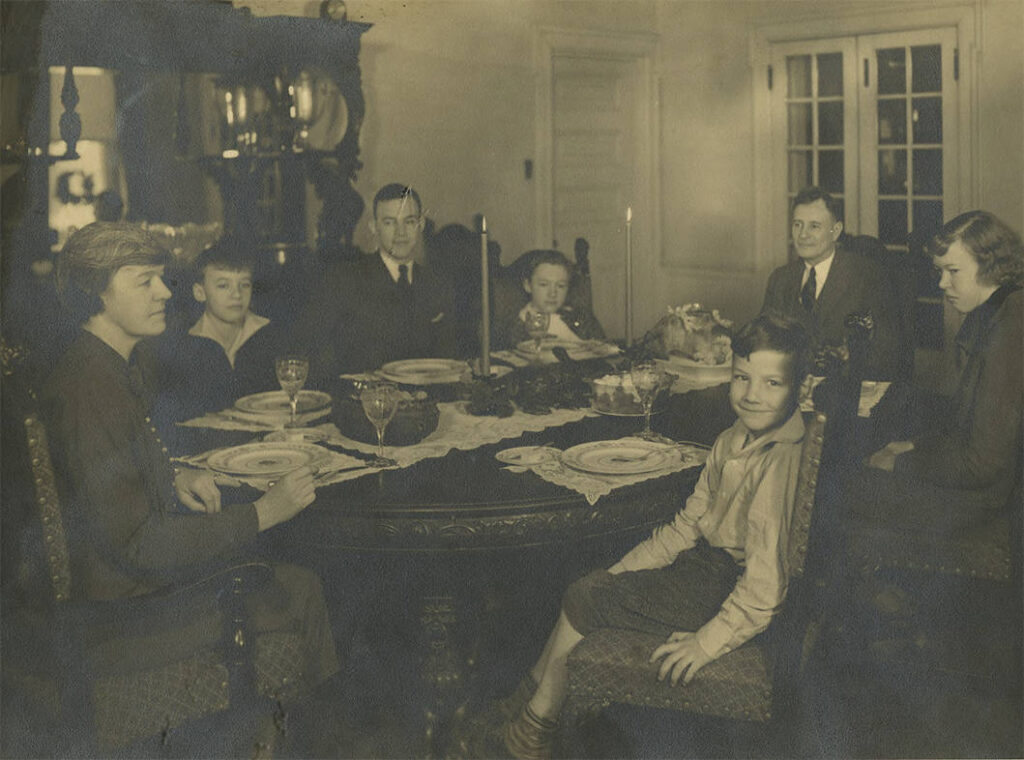calsfoundation@cals.org
Memories Around the Holiday Table: Collecting Family Oral Histories
Many stories are shared at family gatherings around the holidays. The Butler Center for Arkansas Studies at the CALS Roberts Library would like to help you capture those stories in an oral history interview. Oral history interviews are structured conversations that are created to preserve personal or cultural histories, document unique experiences, illuminate historical events from a personal viewpoint, and capture the stories and wisdom of older generations.
As the interviewer, it is your responsibility to guide the conversation, ask questions, and encourage the person being interviewed to share their memories, thoughts, and reflections. The questions are often designed to elicit detailed responses and to cover specific topics or periods of interest.
These interviews are often recorded using audio or video equipment to preserve the narrator’s exact words, tone, and emotions. This recording serves as an important historical document for future reference, research, or sharing within families or communities.
With a better understanding of how these interviews work, we can dive into how to prepare, conduct, and preserve them.
Step 1: Prepare
When preparing for an interview, it is important to do a bit of advance research and form a list of questions to start with. As a rule of thumb, ten prepared questions should be sufficient for a typical 60-to-90-minute interview.
 If the person you are interviewing is over fifty years old, you can likely consult the genealogical resources available through the Central Arkansas Library System to aid you in gathering context about your loved one. Look for information about their birth, where they attended school, the make-up and occupations of their immediate family growing up, and if they moved during their childhood. For more information on how to conduct genealogy research, be sure to check out our monthly Finding Family Facts program over Zoom.
If the person you are interviewing is over fifty years old, you can likely consult the genealogical resources available through the Central Arkansas Library System to aid you in gathering context about your loved one. Look for information about their birth, where they attended school, the make-up and occupations of their immediate family growing up, and if they moved during their childhood. For more information on how to conduct genealogy research, be sure to check out our monthly Finding Family Facts program over Zoom.
Additionally, you may want to have a conversation with the interviewee in advance, to fill in any gaps in the genealogical research. These questions are not meant to be as in-depth as your interview questions. Focus on capturing contextual information about their lives including major household changes; moves; and specific information that will help you shape the interview questions.
After you have a good sense of the chronology and setting of the interviewee’s life, it’s time to write your interview questions. It is important that these questions be open-ended. You do not want the interviewee to be able to address the question with a yes, no, or very brief answer. So, rather than asking “What did your father do for a living when you were growing up?” instead ask “What was your father’s vocation and how did that affect your daily life when you were a child?”
Here are some example questions you might include in your interview:
- Tell me a bit about your childhood growing up in X and what your circle of care was like.
- What was your experience like growing up in X?
- What was your educational experience like in X?
Step 2: Conduct
Now that you have your questions prepared, you can conduct your interview. We have a video available that shows how to conduct an interview using a smart phone or Zoom.
 Here are a few additional tips:
Here are a few additional tips:
- Make sure you are doing the recording in a quiet place. The holidays can be a bit rowdy depending on your environment, so try to find a space where you will likely not be interrupted, that is free of background noise, and that is not likely to create an echo. Make sure the seating is comfortable, but also not noisy.
- Do a test recording before actually diving into your interview to make sure you can both be heard clearly.
- Actively listen and take notes. When appropriate, ask clarifying or follow-up questions to learn more about individual experiences or people mentioned.
- Be sensitive to difficult experiences. If someone is uncomfortable speaking about something, check in. Do they need to take a break? Would they like to change the subject? You want to be respectful of the effect our lives have on us and the emotional response sharing memories may bring up.
Step 3: Preserve
Interviews are special, unique, and irreplaceable. Save the digital file in more than one location; having lots of copies keeps stuff safe. You can use local storage on your computer, a flash drive or external hard drive, and cloud storage. Be sure that no matter the option you choose, you have saved a copy in another location too.

If the interview conducted has to do with Arkansas history, and you would like to donate it to be archived at the Butler Center for Arkansas Studies, be sure to have your interviewee complete this form after the interview. Typically it is not appropriate to ask for consent prior to the interview. It allows your interviewee to speak freely without having to consider that what they said is now officially “on the record.” They can then later consider whether they want it added to the historical record.
Individual interviews can be emailed to community outreach archivist Danielle Afsordeh (dtafsordeh@cals.org) with the agreement attached. Audio files can be submitted as .mp3 and video files as .mp4.
There are many resources available at the Central Arkansas Library System to assist you in conducting these interviews. We have a dedicated recording room at the CALS Roberts Library that you can sign up for a time to use. Additional resources for interviews can be found here.

If your interviewee shares that they have archival material related to their lives including audio, video, photographs, slides, or documents, we have a Memory Lab at the CALS Roberts Library where patrons can digitize these items. Having these physical materials digitally available to share with your family can make a low cost but impactful gift this holiday season. To learn how to organize and prepare these materials for digitization, be sure to check out our monthly Personal Archiving class on Zoom.
Conducting an oral history interview with a loved one can unlock a treasure trove of memories, wisdom, and unique experiences. These intimate conversations strengthen familial bonds and serve as a testament to the value of personal narratives in understanding our past. By capturing these stories at the holidays or any time throughout the year, we can be sure that our community legacy lives on.
By Danielle Afsordeh, community outreach archivist at the CALS Butler Center for Arkansas Studies/Roberts Library




